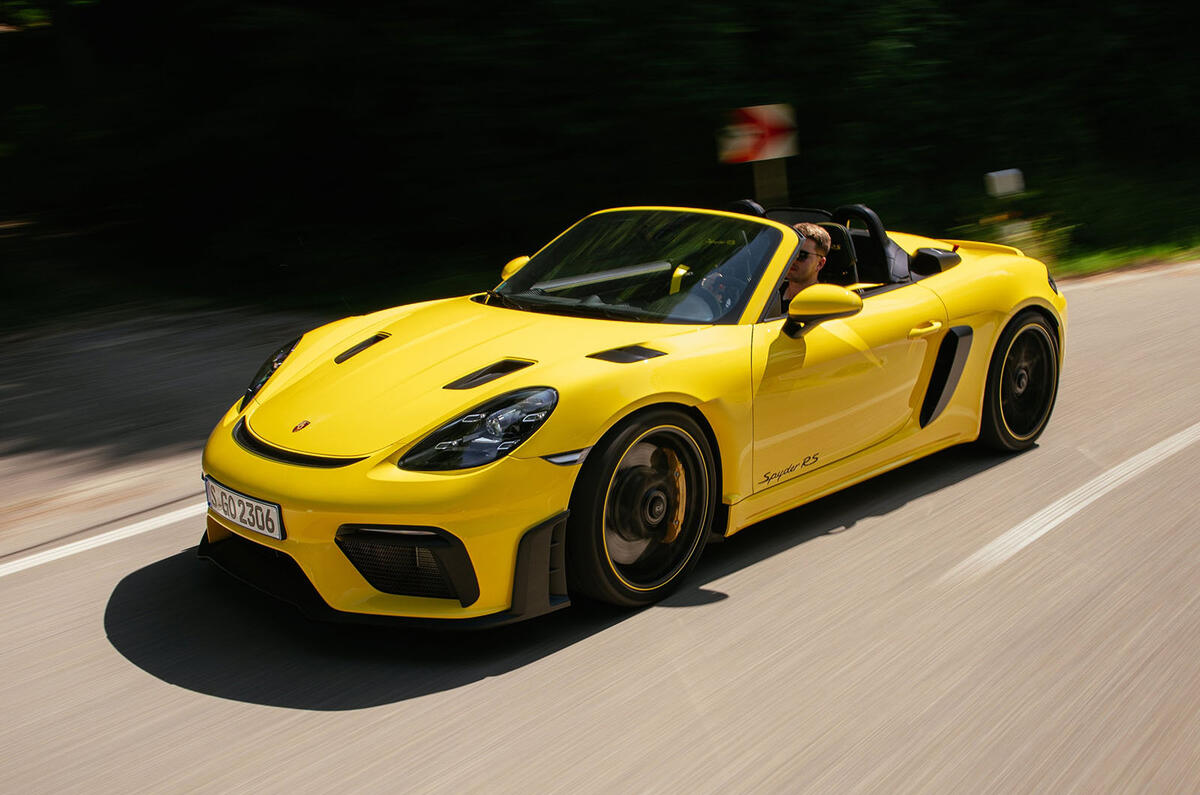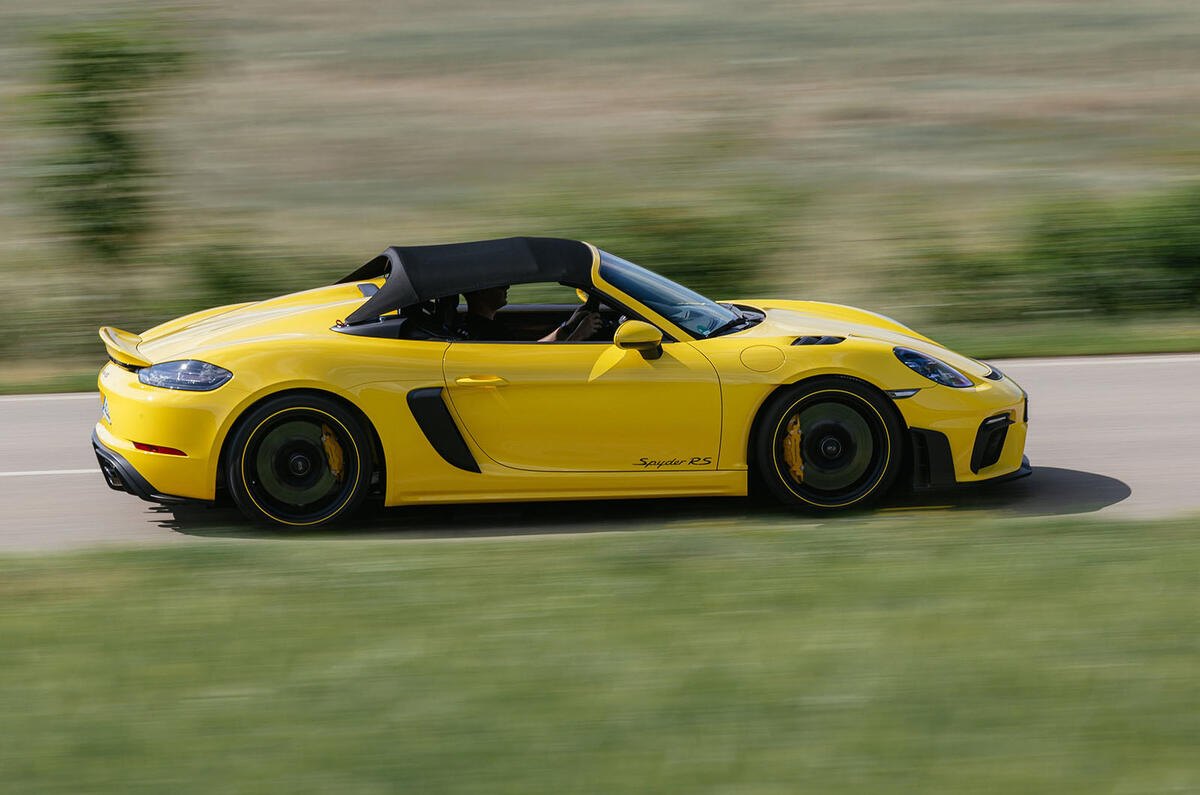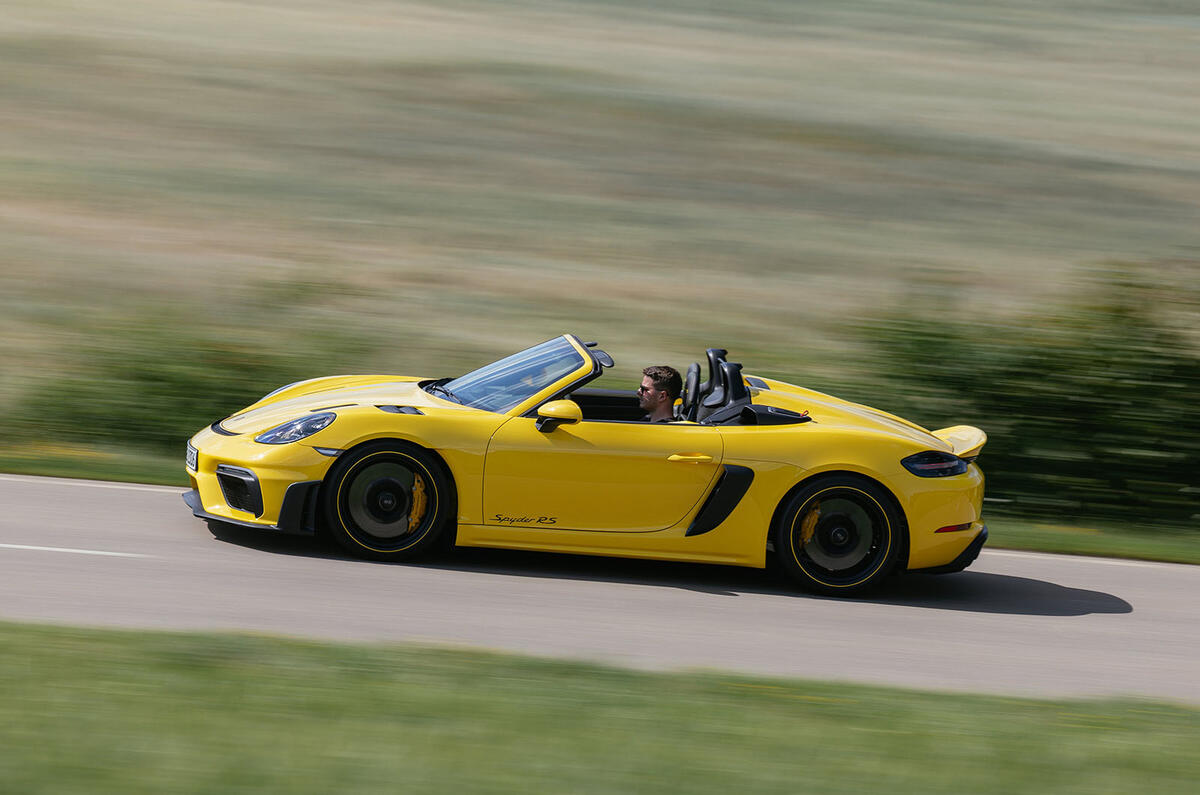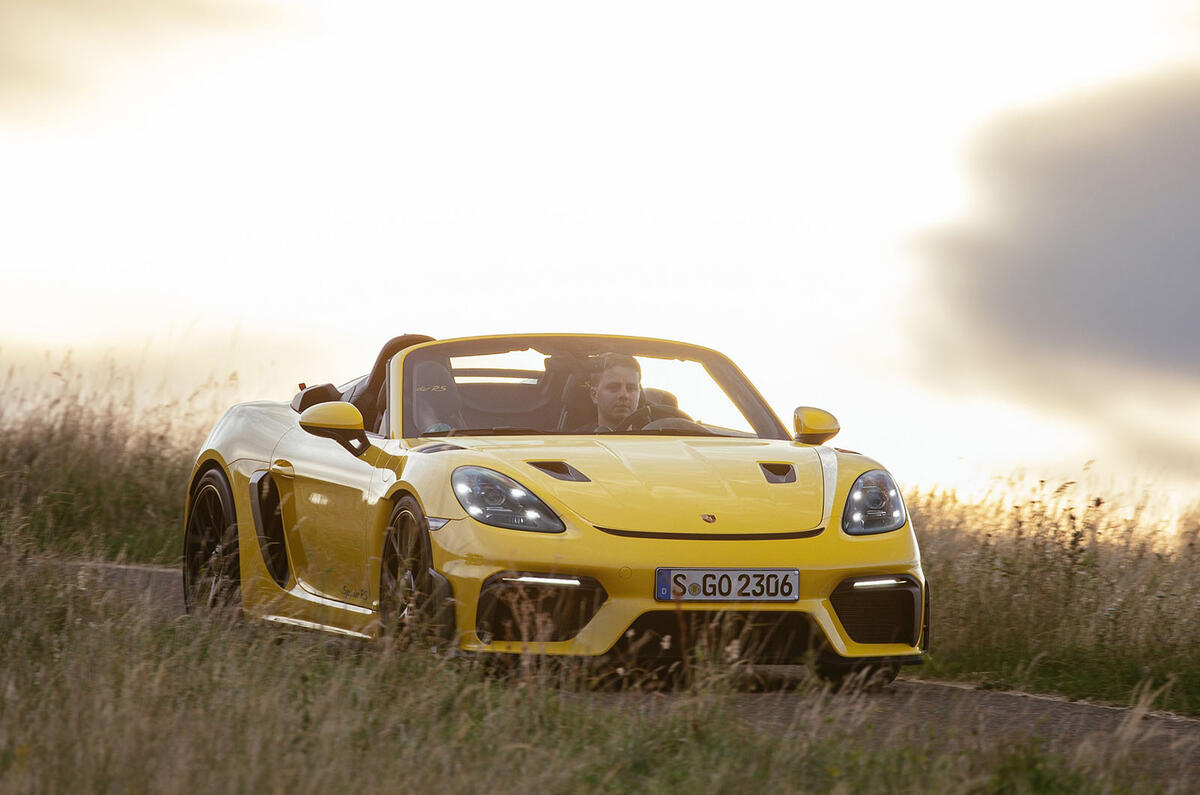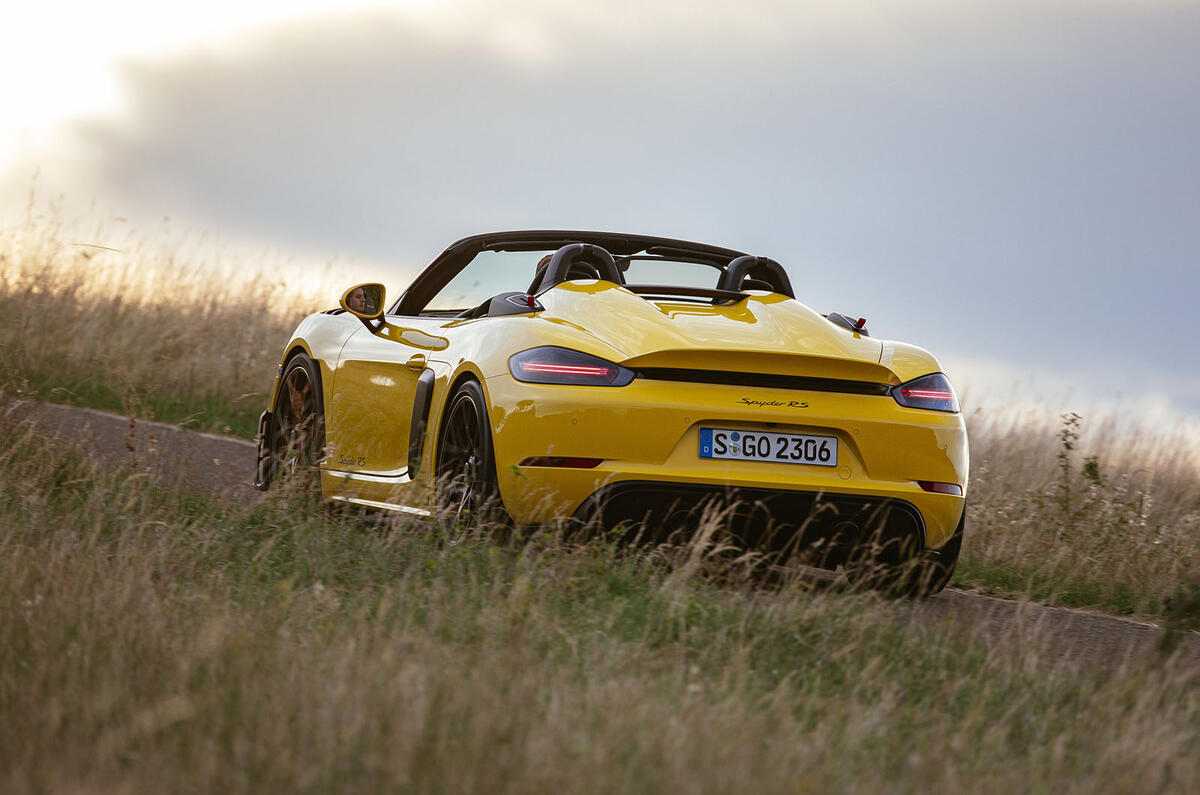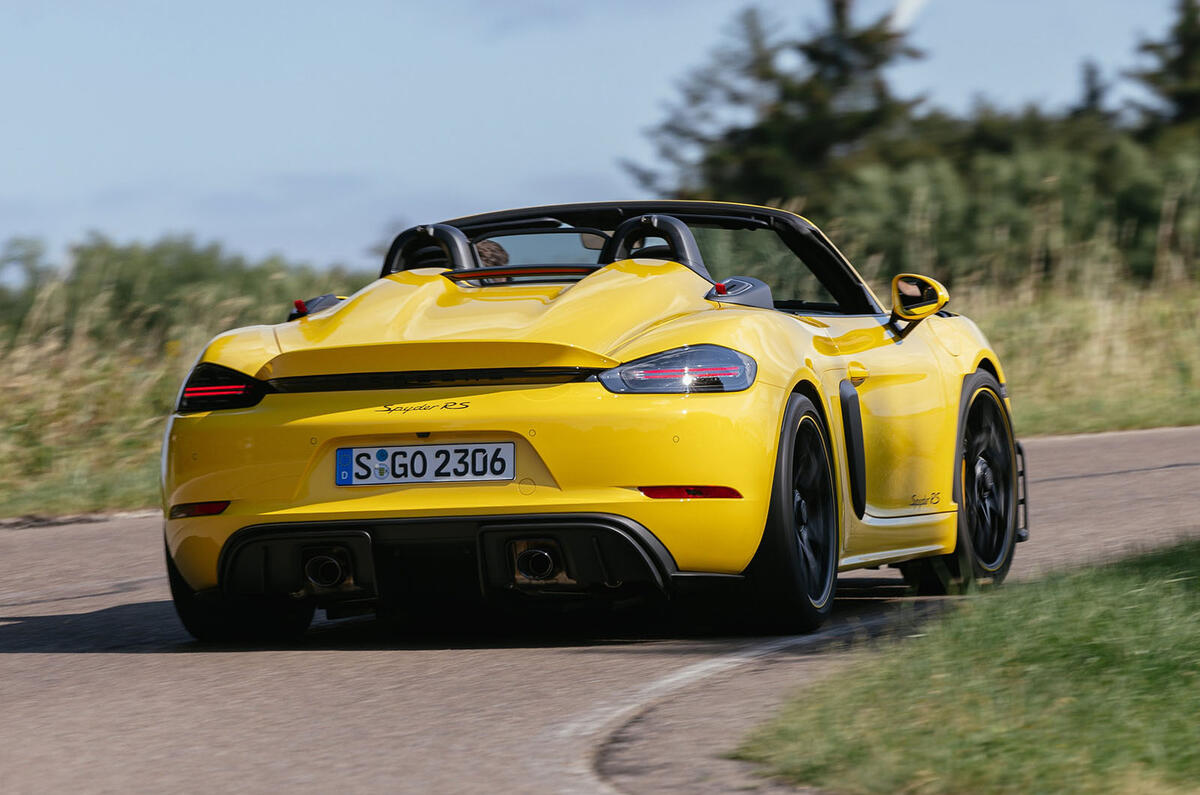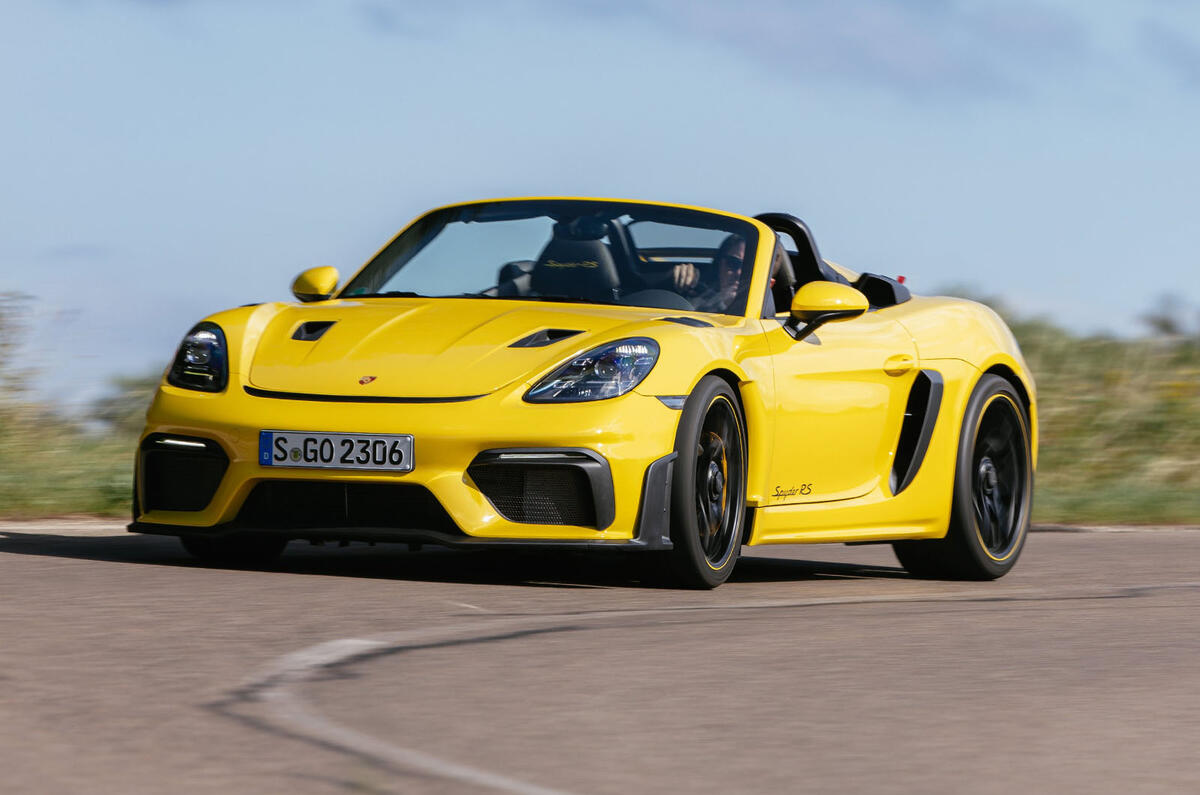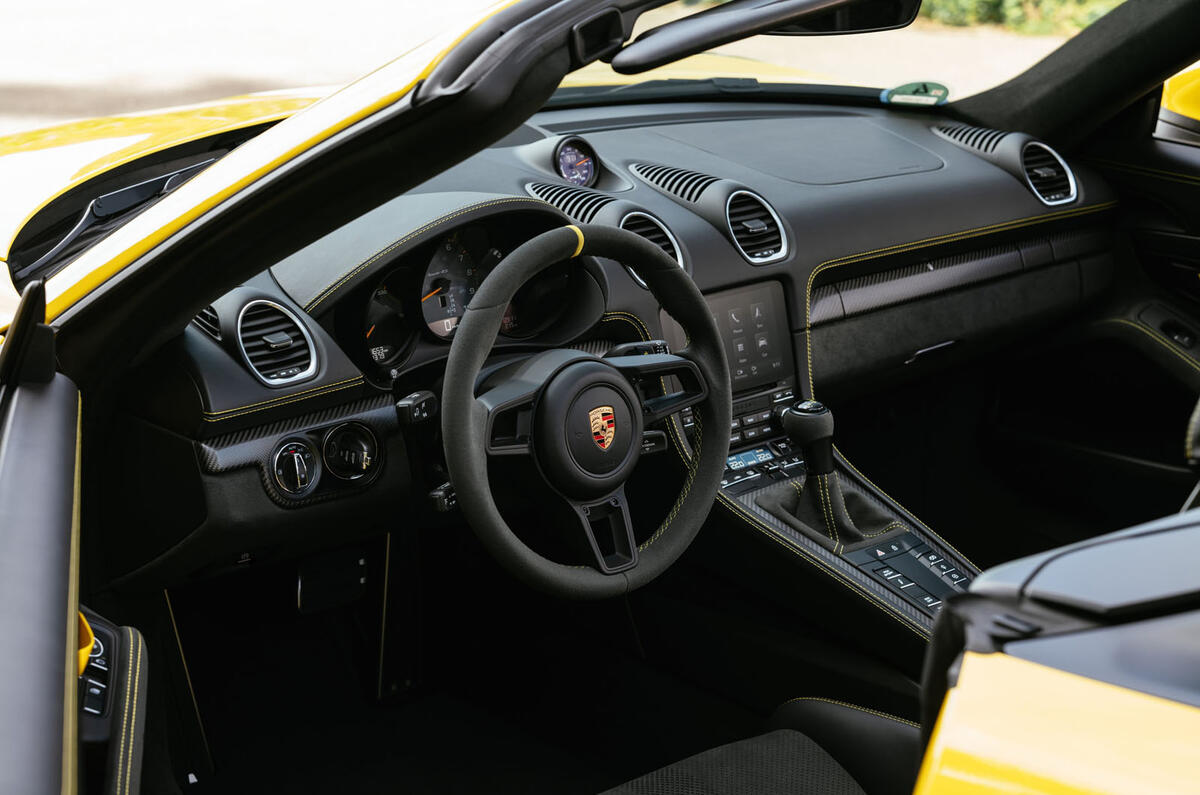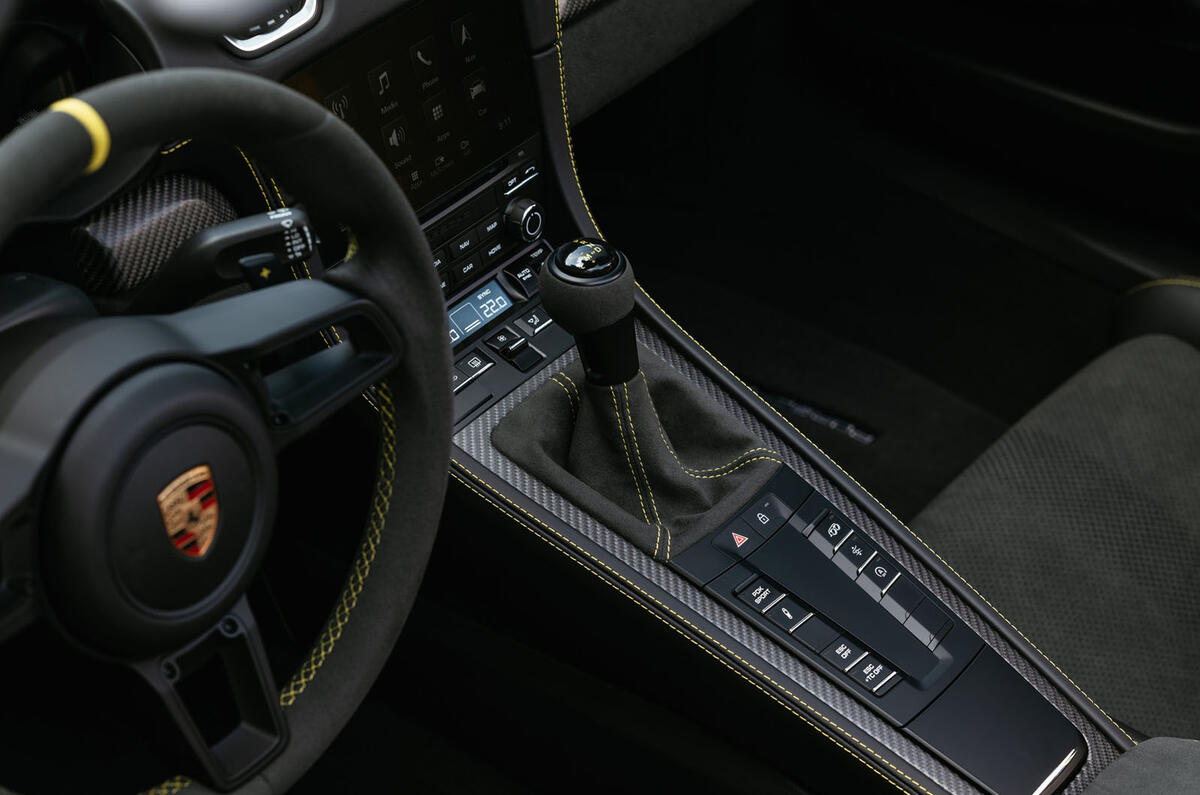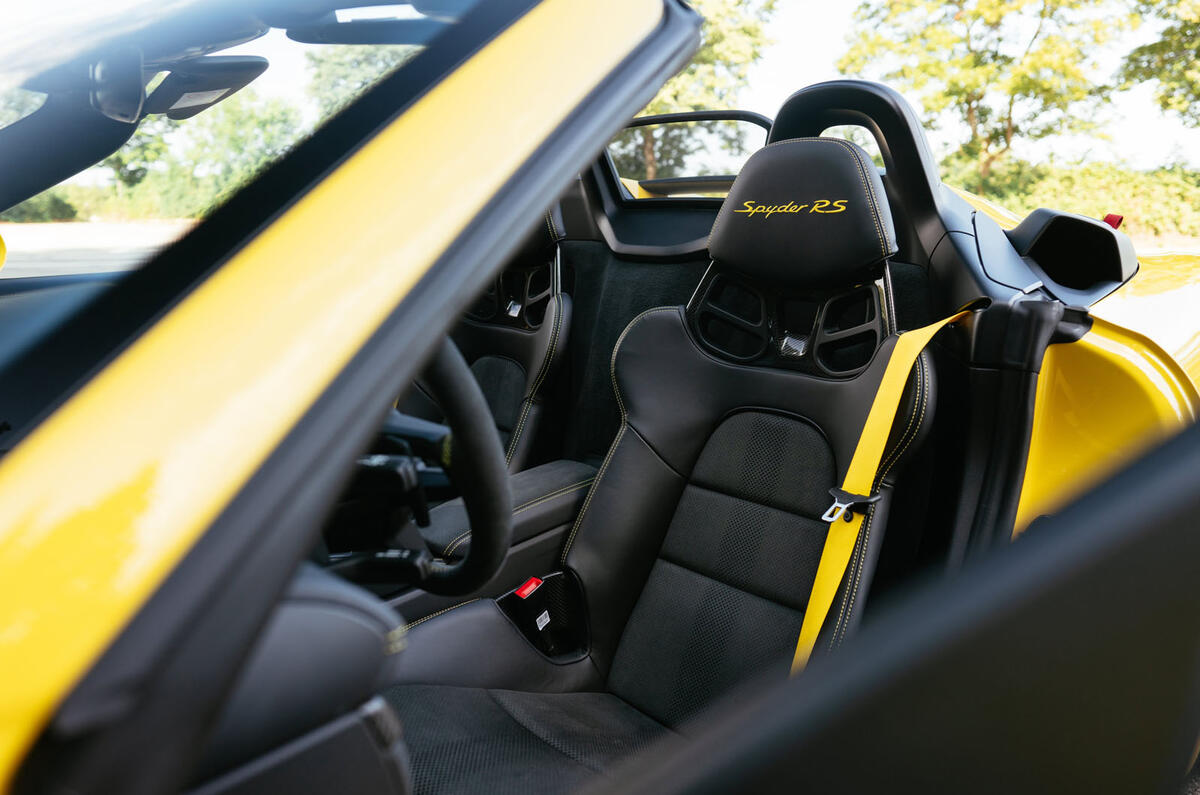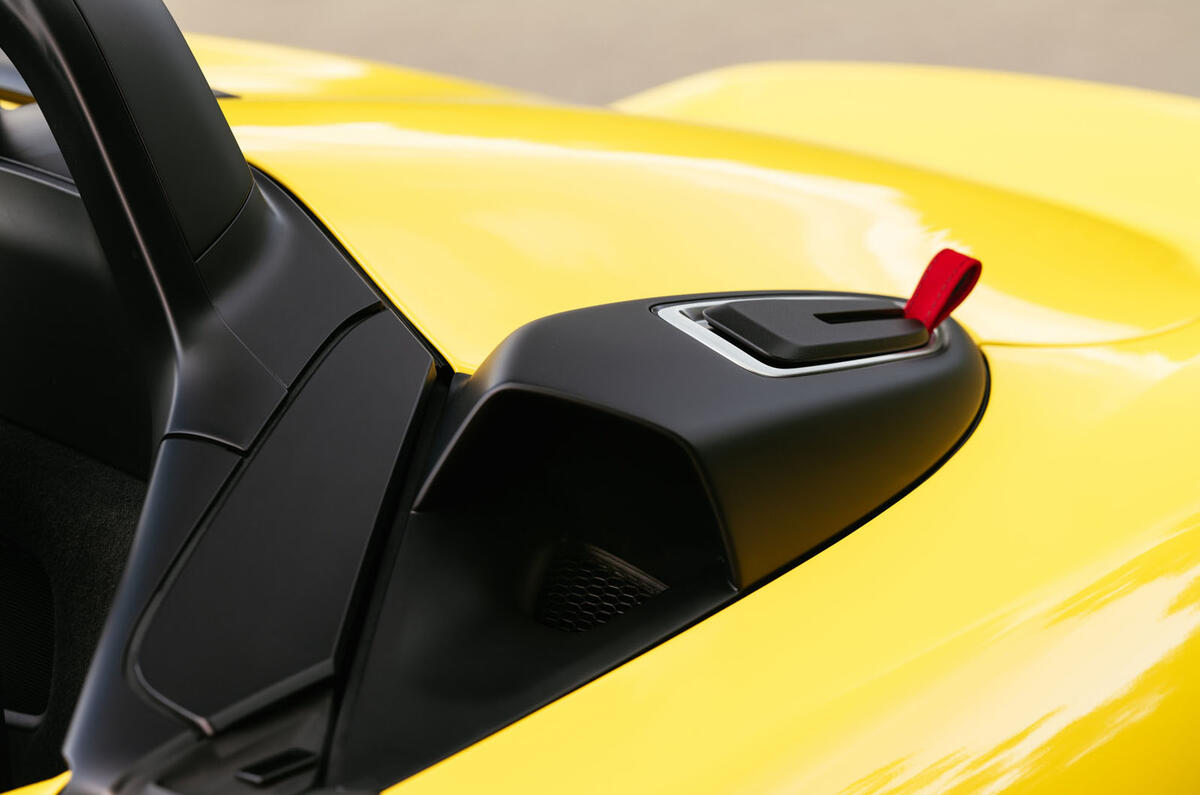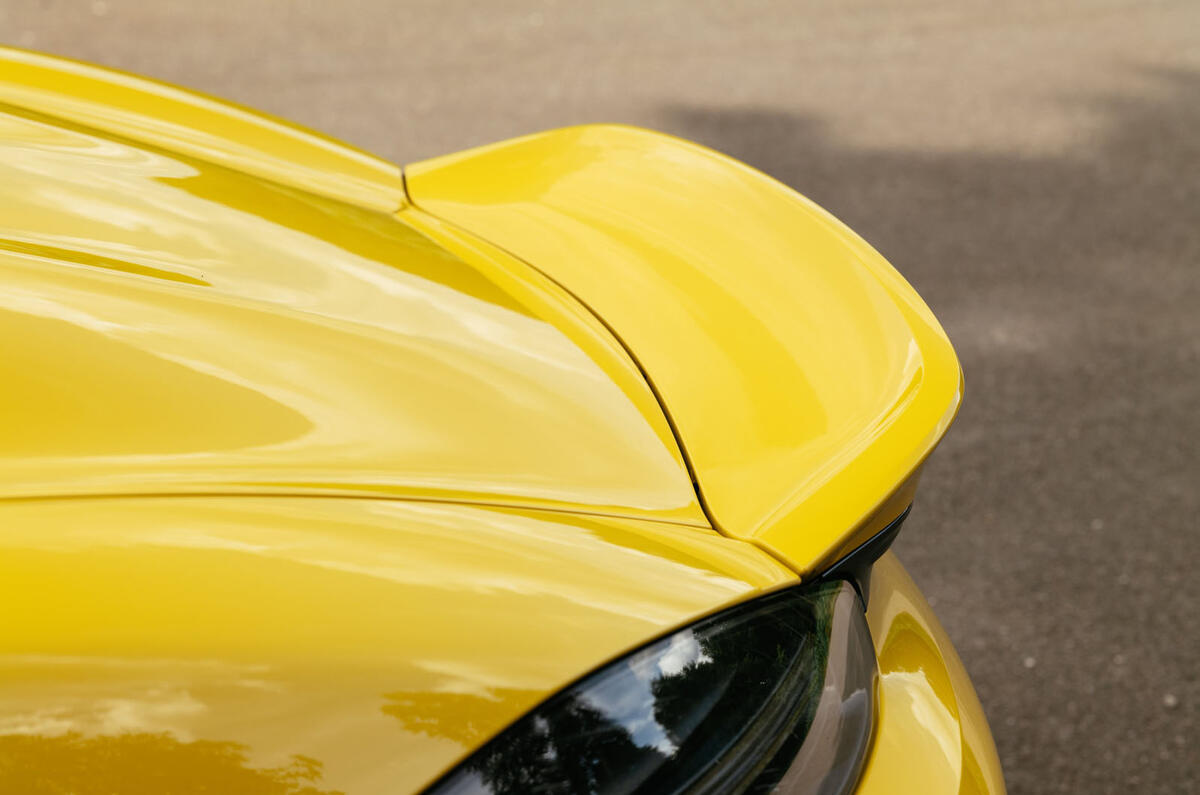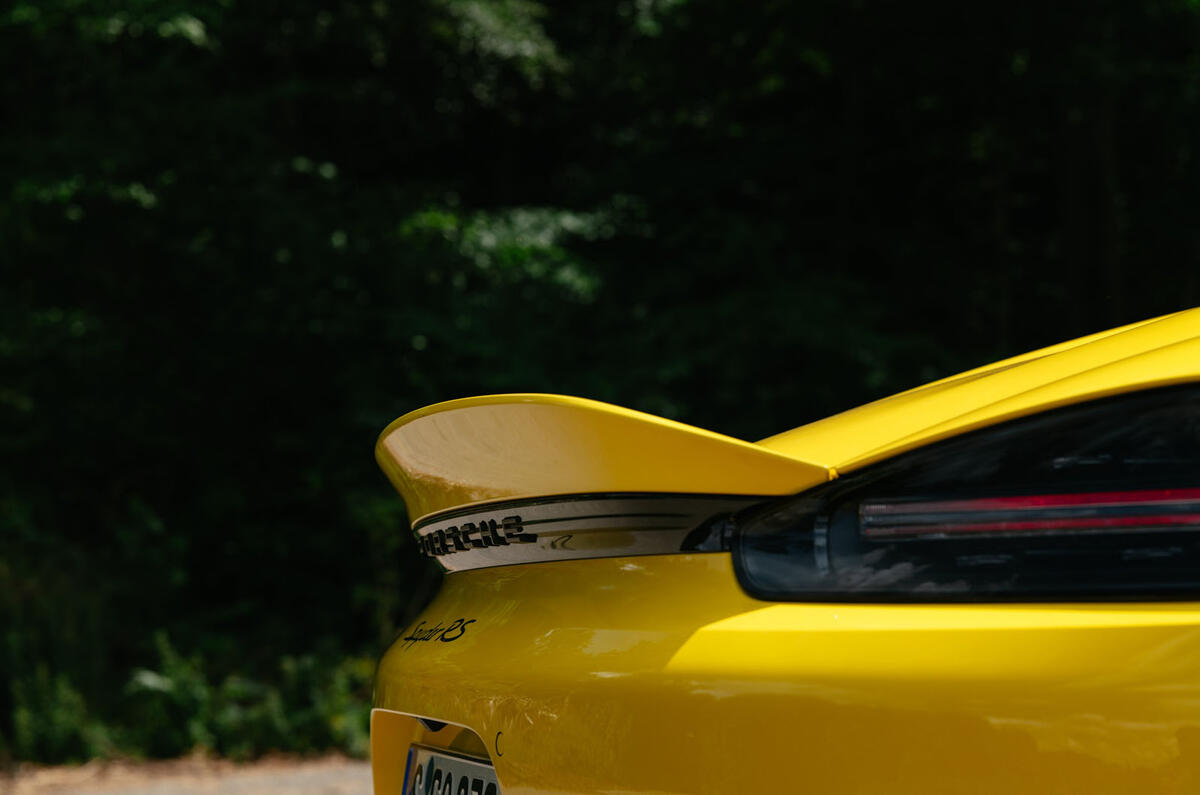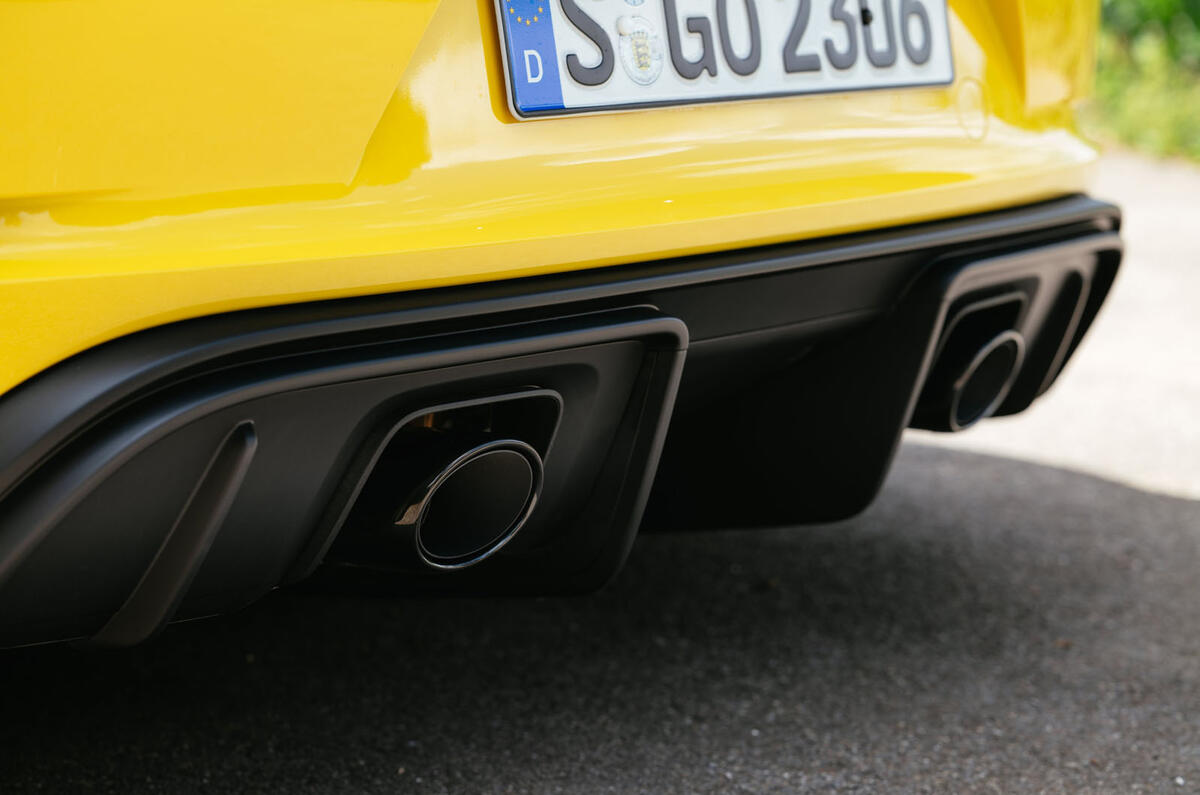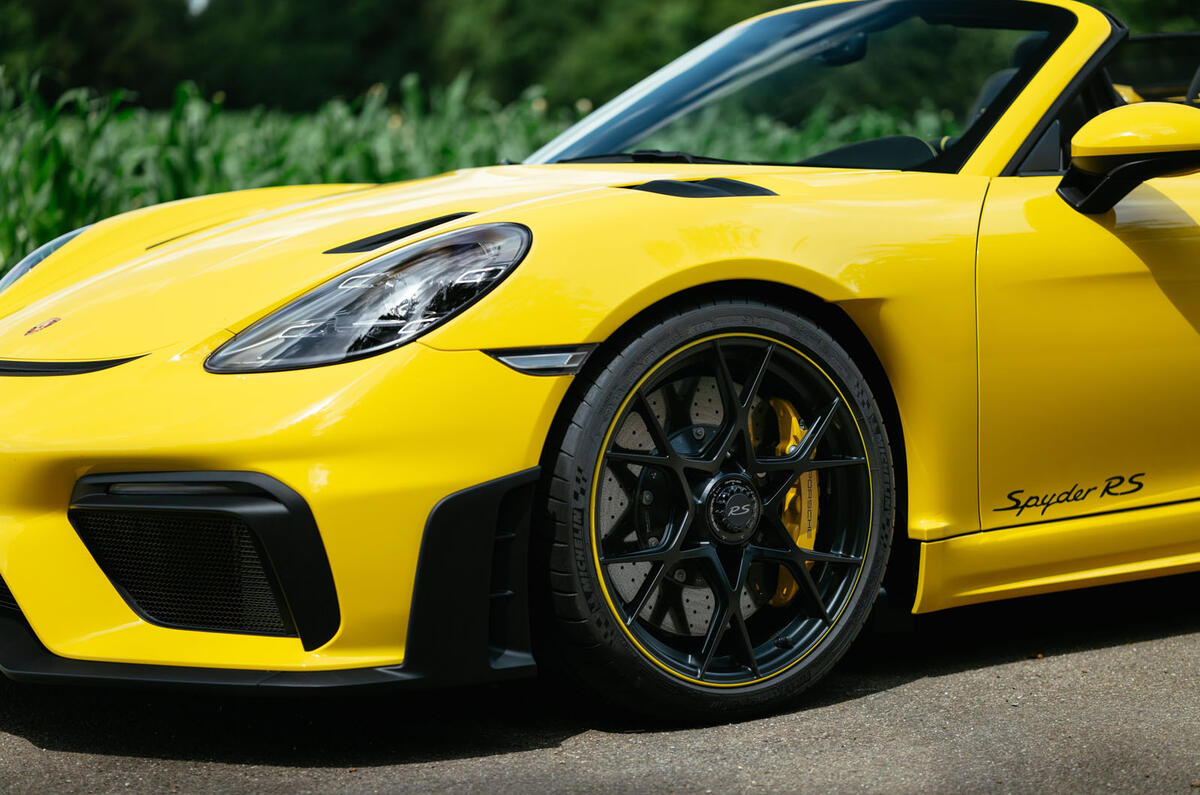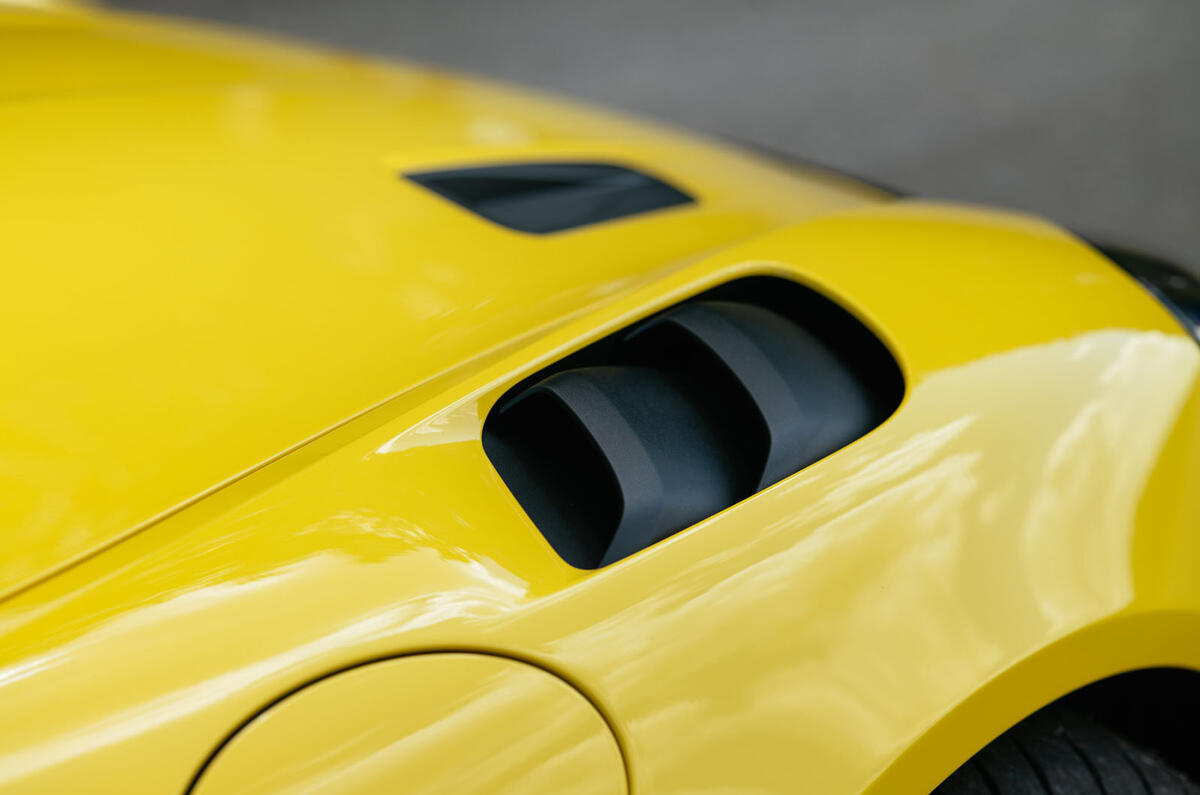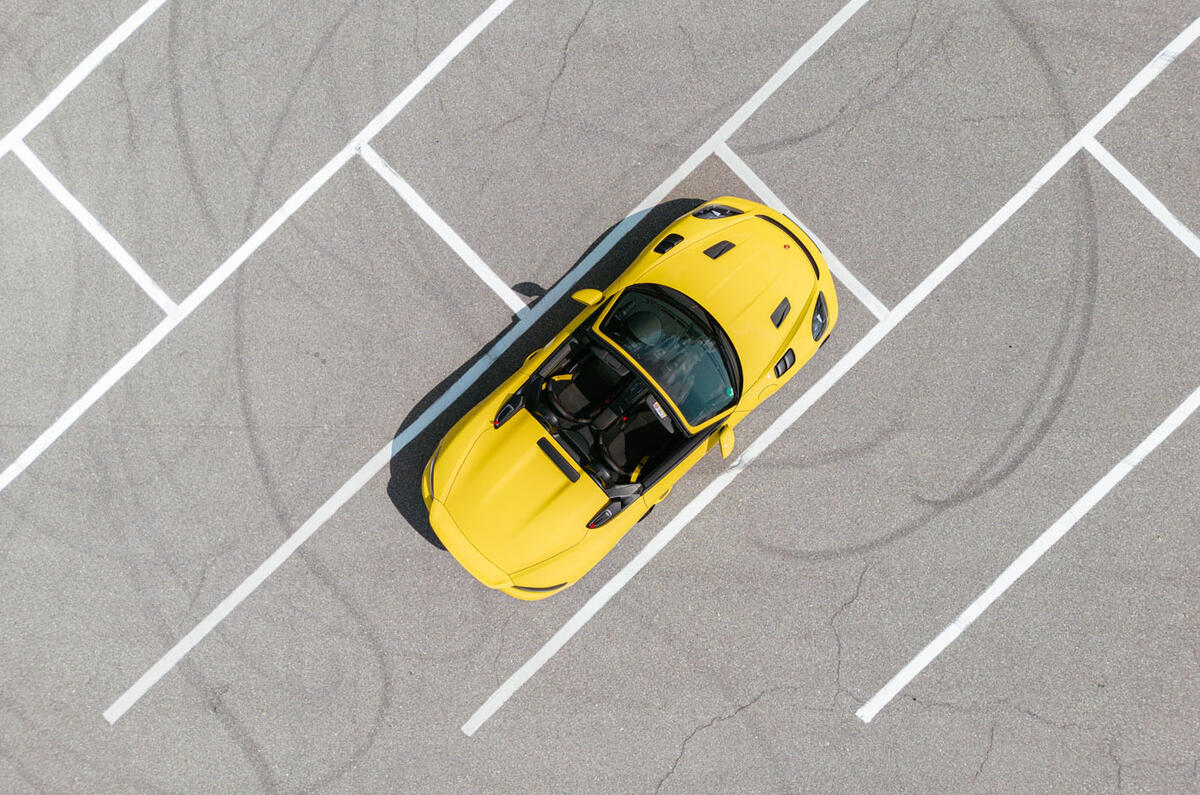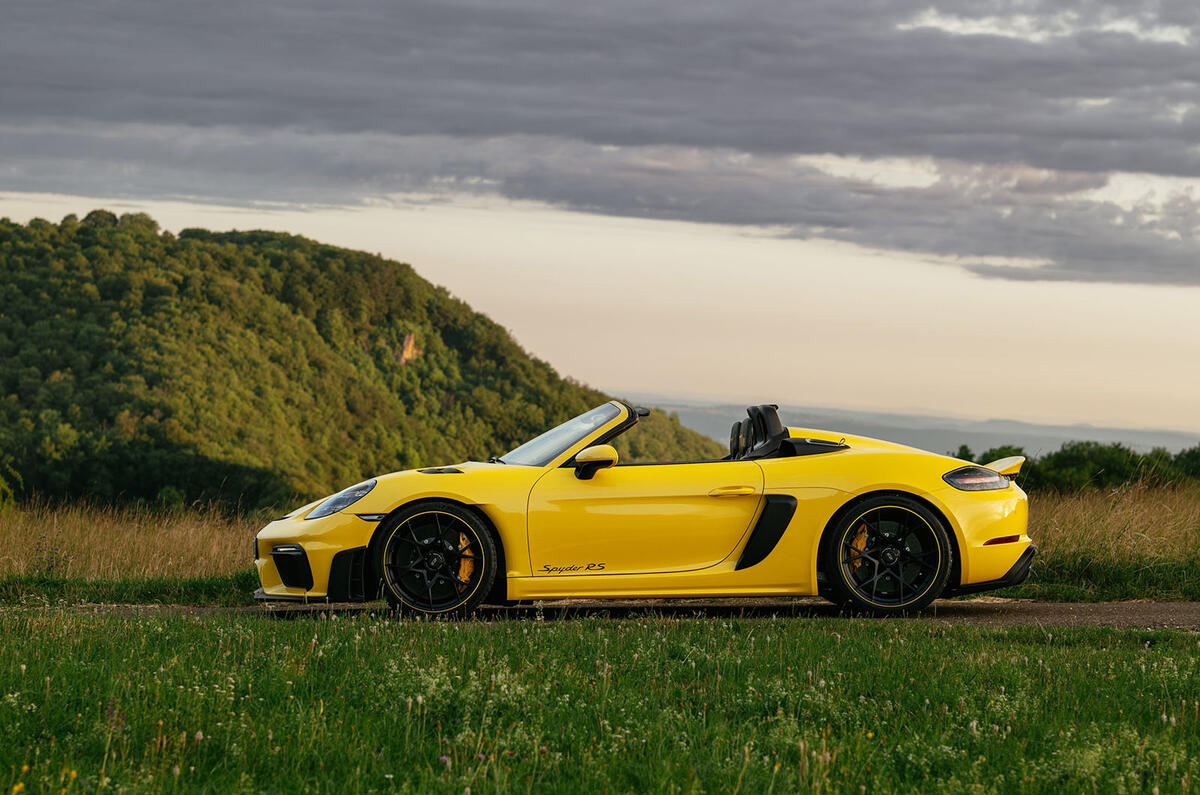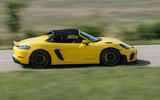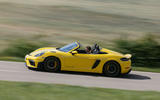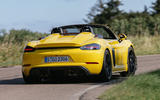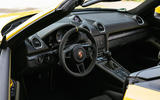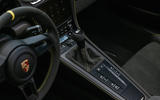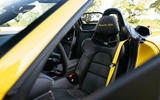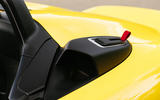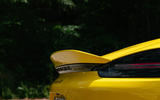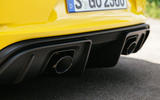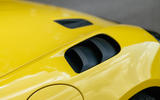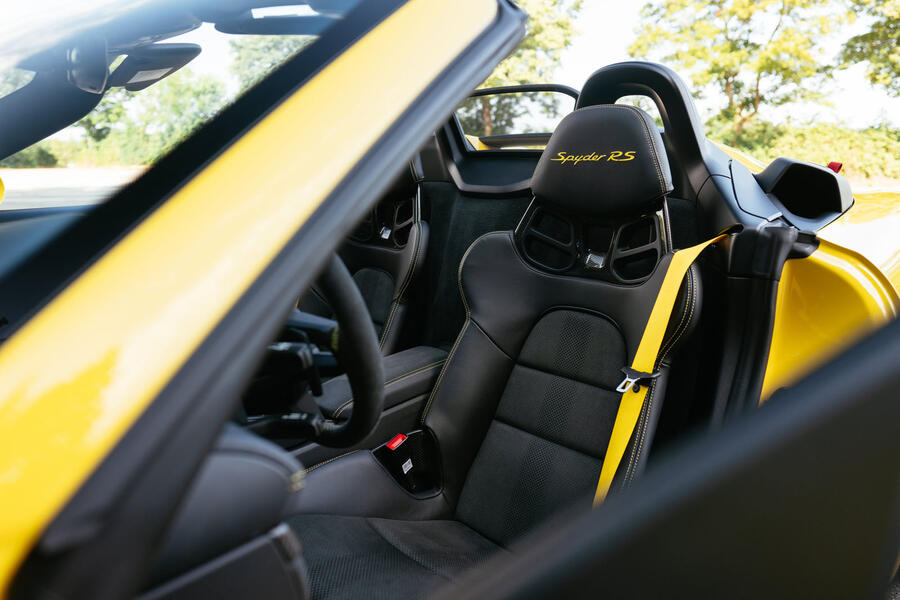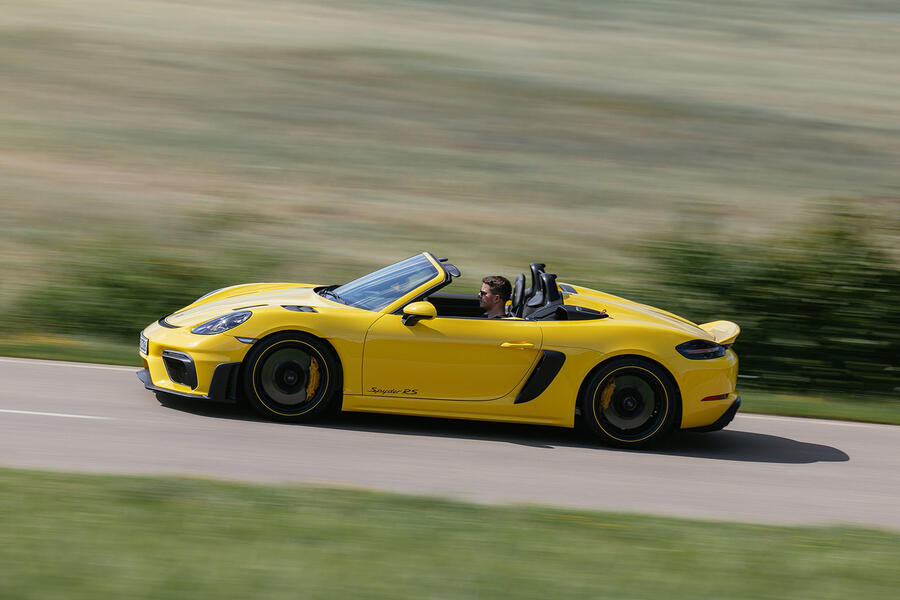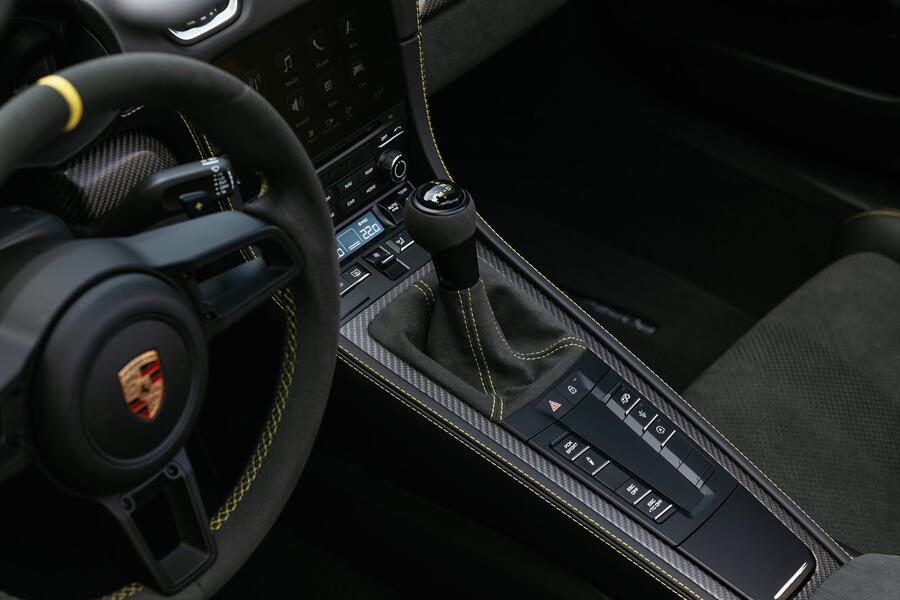Who could forget the Carrera GT? Porsche’s V10 shrieker deserves all the hype it gets, yet it has one under-reported quirk.
The car’s race-derived motor gives bystanders the sonic hiding of a lifetime but the individual administering it has to settle for a more subdued rendition. Perversely, you’re better off outside than in.
The same can’t be said for the 718 Spyder RS. This wonderful machine is many things: the last petrol model on Porsche’s mid-engined platform, the only RS car to date not expressly intended for bullying on track, the first time Weissach has discarded the gloves with an open-air, purist’s car since the Carrera GT.
But more than any of this, the Spyder RS is arguably the most animalistic car on sale in the realm of stuff that a) doesn’t cost seven figures, and b) could conceivably be driven daily. Beyond 8500rpm, the metallic barbarity of the intake yowl emanating from the Countach-style airboxes atop the hips of the body can’t be expressed in words.
The car is a sibling to the Cayman GT4 RS, albeit with detail changes that orient it more towards road than track. Both use the same 493bhp 4.0-litre naturally aspirated flat six from the 911 GT3, only spun round and paired with a short-ratio PDK. Launching the Spyder RS on home turf, Andreas Preuninger was keen to portray it as a pure driver’s car, less concerned with lap times than open-road hedonism.
So why no manual ’box? Porsche’s GT division chief’s answer was twofold. First, the six-speeder used for the comparatively tame 718 Spyder is geared too long for the 9000rpm potential of the RS. Second, the six-speeder from the 911 GT3 is physically too long. In the rear-engined car it flows forward from the flat six but in the mid-engined 718 it would need to extend backwards, which it cannot do.


